
Relationships • Relevance • Responsibility.
People • Places • Possibilities.
Fully Prepared isn’t Fully Engaged.
Learning is Social and Emotional.
Learning Happens Everywhere.
People-Powered Supports.
These are the mantras of decades of promoting youth development, all speaking in some way to the essential truth – Relationships Matter. This has been underscored in recent years by the studies of neurotransmitters in the brain and the powerful release of oxytocin that shows how much relationships are the medium through which learning happens.
In the midst of the pandemic, this truth came home to me in ways more powerful than I could have imagined. My 90-year-old mother, who had been dealing with dementia for some time, took a tumble on Superbowl Sunday 2021 and went into a rapid decline. The hospice social worker said “Come, if you want to see her before she goes.” She estimated mom would be with us for a week, maybe 10 days. I triple-masked and headed to the airport. Tucked into my bag was a “memory puzzle” that my brother had handed to me. Although I told him I thought it was too late for something like that, I took it anyway. When I got to Phoenix, mom was as described. Listless. In her recliner chair. Asleep 23 hours a day, waking only for Wheel of Fortune and Jeopardy. There was talk amongst the care team of “COVID isolation.” She was essentially gone.
Then we tried a puzzle. First, you should probably know that I LOVE puzzles. Puzzle making is my one true superpower. And my mother knows this. It didn’t take too much to coax her to the table to sit with me while I did a puzzle. Our first time through the puzzle, she watched and occasionally pointed at one of the 20 puzzle pieces that formed a colorful garden scene of birds on a birdhouse. By the end of the week, her tiny hands were picking up pieces, putting them in order, delighted with the birds and butterflies. For more than a month, we made puzzles together. Puzzle-making led to storytelling (“I worked on a farm like that the summer I turned sixteen . . .”). We then moved to coloring. Seeing my mother – an award-winning teacher and artist that had received a full-ride scholarship from Hallmark to attend art school in the late 1940s – learn to pick up a color pencil again was humbling. Especially when her “coloring” turned out subtly shaded works of art, while I simply filled in the contours of each picture with the more rudimentary color blocks of my childhood. After a few months, mom moved to freehand drawing. On a later trip, she would sit with me at the piano and create music using the pentatonic scale (black keys only).
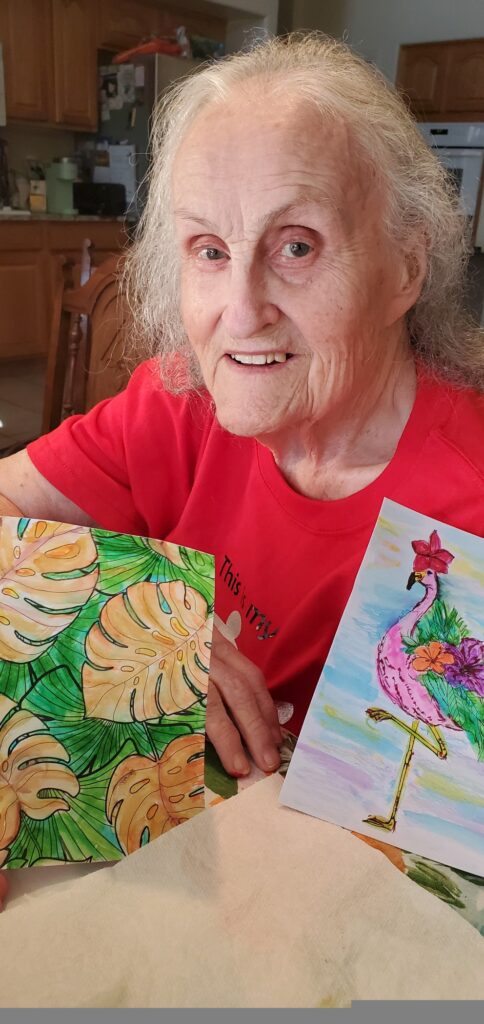
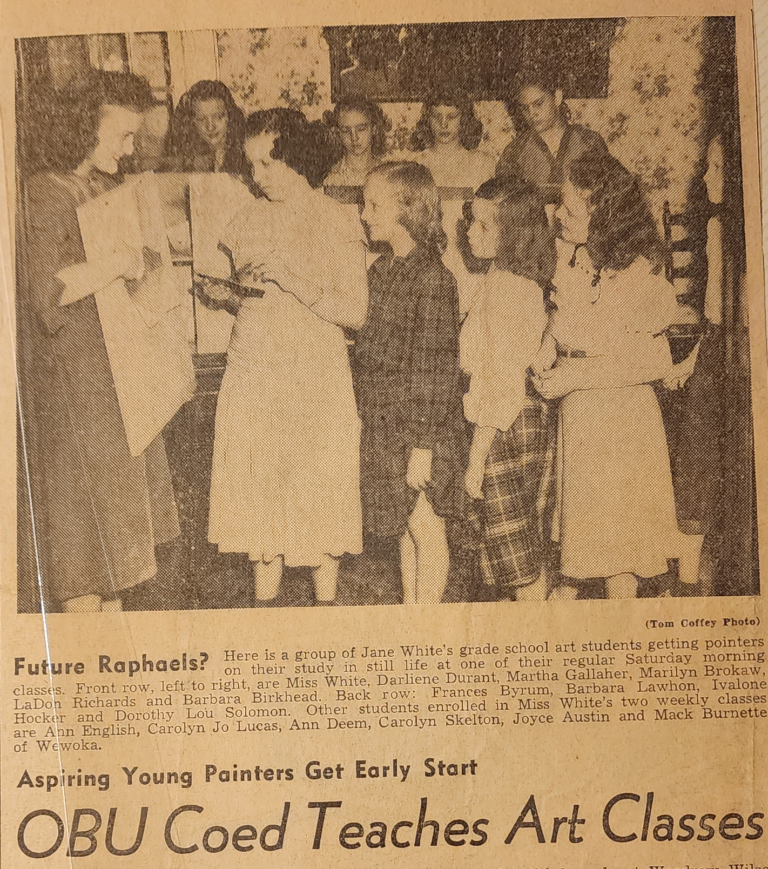
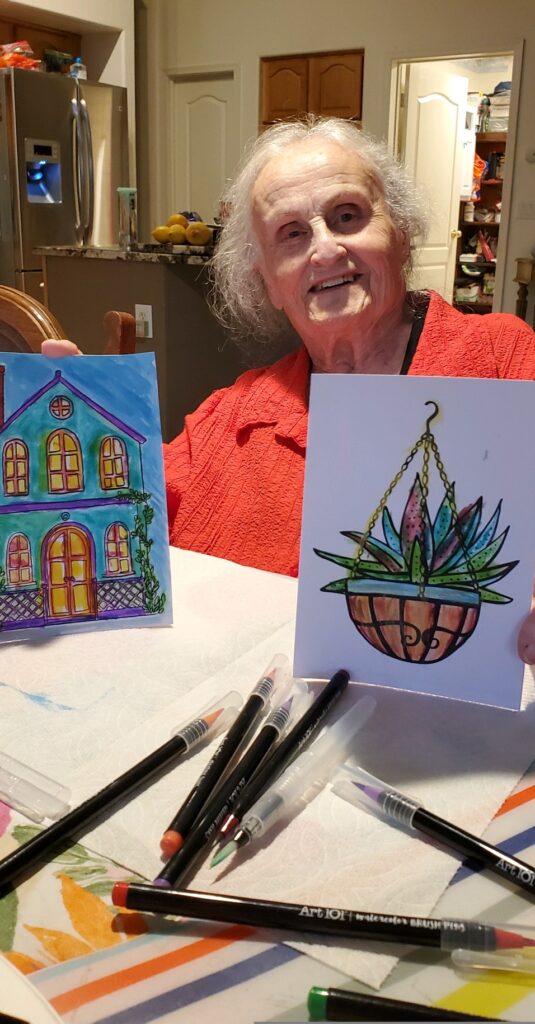
Seeing mom “re-learn” so much kept bringing me back to what I had learned these past few years about the power of relationships on brain functioning. The hospice social worker dubbed it miraculous when she saw how much mom rallied and reemerged. While it started with my first COVID visit, we intentionally maintained the “pictures and puzzles” connections with the help of the church ladies that came in twice a week, the hospice volunteer, the daily caregivers that were so enamored with mom’s improvement that they regularly brought in art supplies and craft projects to find new ways to engage her. But mom wouldn’t sit at the table alone. To engage, she needed the companionship, the encouragement, the connection.
Mom was with us for another year and a half, finding joy in small things every day. But relationships matter. When my father passed away from a heart attack in mid-September, my mother lost “her person” of 72 years. She was lost without him. No amount of puzzles, painting or piano could keep her with us. Within two days, she essentially went to sleep, and did not reawaken this time.
When I returned to DC after their joint graveside service, I found myself in a swirl of relationship-driven activity at the National Summer Learning Association conference. Doing a panel with NPSS on the essential people-powered supports that are key to helping young people recover from the pandemic. Comparing notes with long-time friends as we explored new ways to work together. Seeing Jane Quinn and Karen Pittman reconnect with huge hugs.
I went through the conference reflecting on what my mother – my first teacher – had been trying to help me understand all along. Learning happens through love. Love of who you are with. Love of what you are doing. Love of what you are creating together. And what you learn through love lasts a life-time – and beyond.




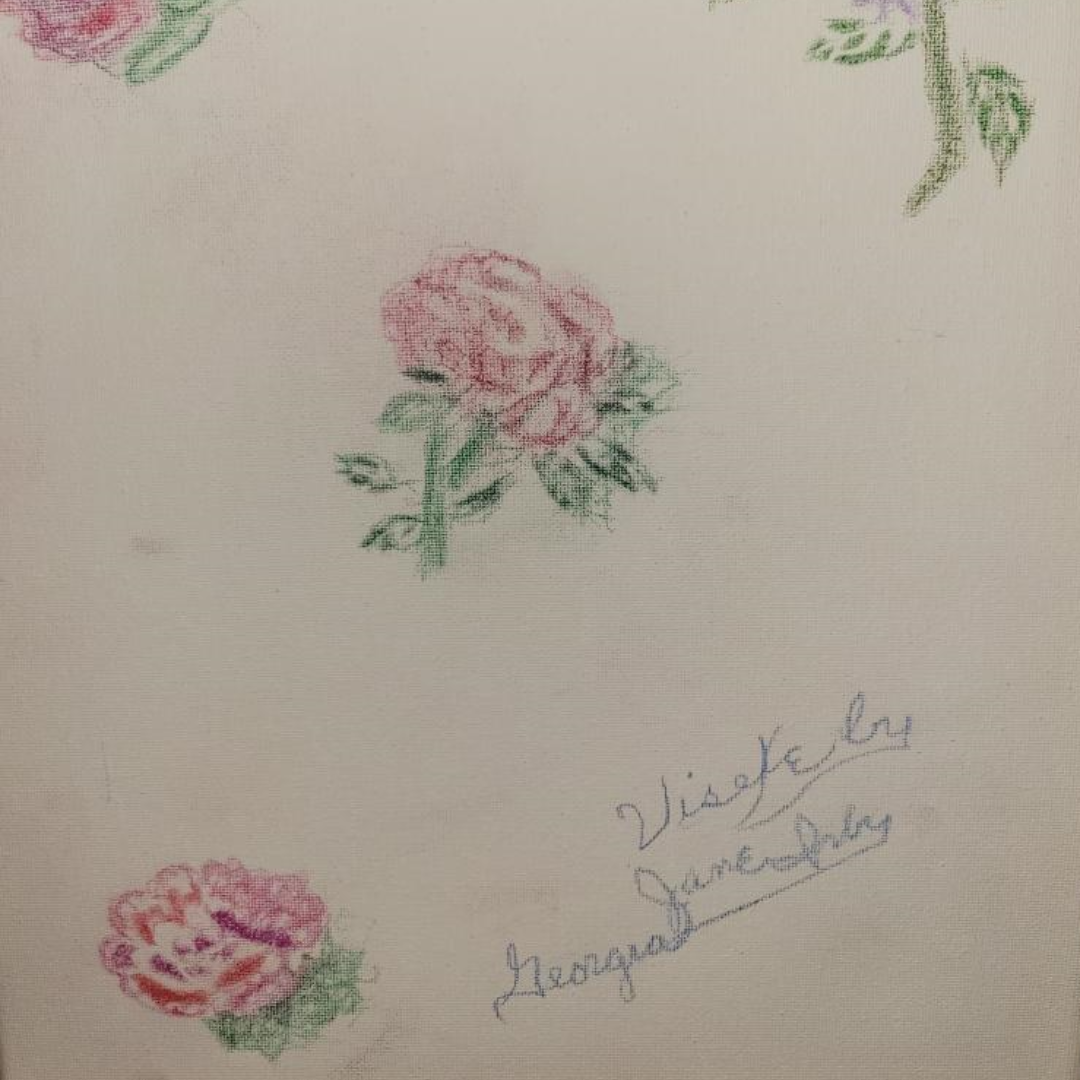
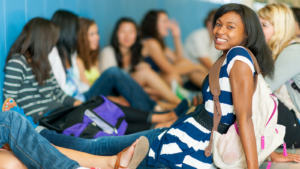
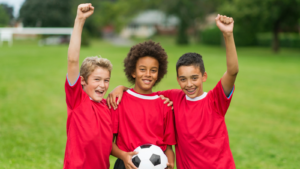
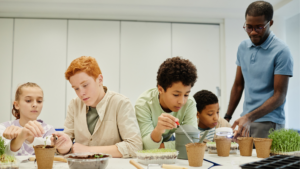
1 Comment
I absolutely LOVE this beautiful story. Ms. Irby has powerfully and passionately captured the triumph and heartbreak of deep love in this beautifully written story. Bravo!